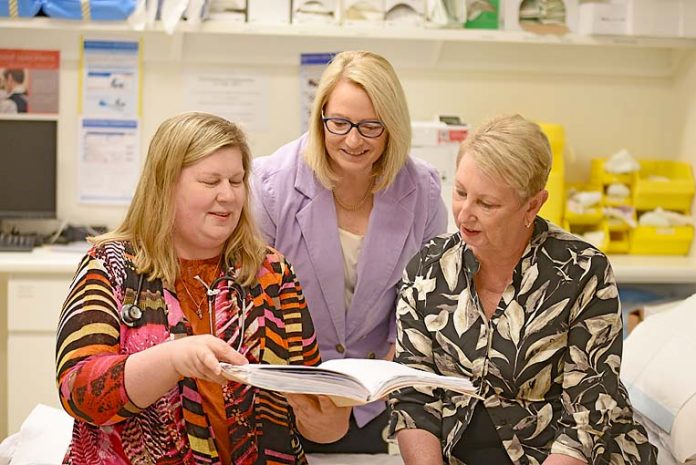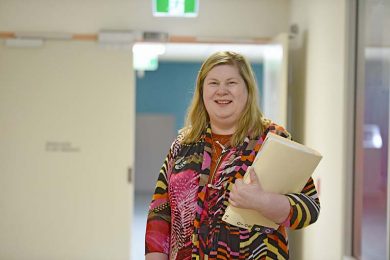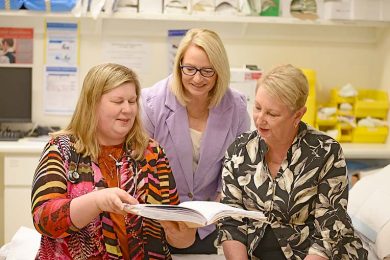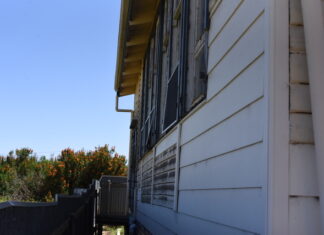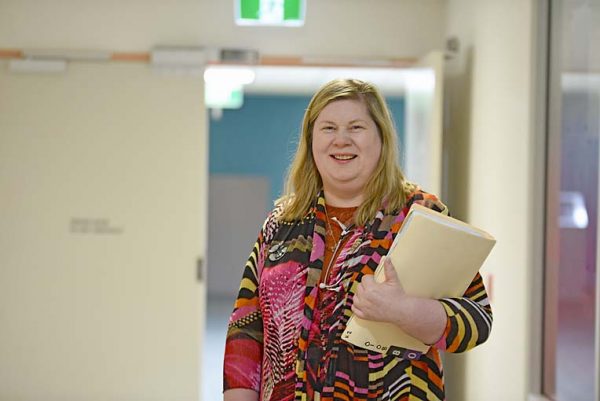
MOUNT Gambier Hospital will pioneer cutting edge treatment for cancer patients as it begins a new chapter as a regional clinical trial centre.
Considered a major development for the regional hospital, patients selected for the “tele-trial” centre will have access to emerging and new-age cancer drugs and therapy trials.
The first patient – who has rectal cancer – has already signed for the trial and will officially begin the process this Monday.
The opening of the Mount Gambier Tele-Trial Centre is a significant step forward for the health facility given it is one of only a small number of similar sites across regional Australia.
A collaboration between Flinders Medical Centre, Flinders University and Clinical Oncology Society of Australia, it is hoped the “satellite” Mount Gambier centre will lead to new treatments for cancer patients.
While the first trial will focus on rectal cancer, it is hoped other trials will be rolled out.
Tele-Trials project chief investigator Dr Dagmara Poprawski – who is a leading regional oncologist – said the tele-trial centre was the first to be established in regional South Australia.
Revealing there were always new medications being trialled, she said researchers were working hard to provide “new treatments and new hopes”.
She said the new centre would partner with the oncology research team at the Flinders Medical Centre to deliver the trials.
Dr Poprawski said there were currently no cancer clinical trials offered outside metropolitan Adelaide.
She said the health staff had been working “very hard” to form a tele-trials centre team and implement training so trials could begin.
“Governance is very important, along with upskilling to provide clinical trials,” Dr Poprawski told The Border Watch.
“The RENO (Rectal Cancer No Operation) trial is our first trial to put into practice – it is a multidisciplinary cancer trial.”
The oncologist said the trial would be conducted by independent investigators from Flinders Medical Centre’s oncology unit and cancer services.
“This trial is based on some early work done in rectal cancer patients where it was very clear these patients end up after surgery with a stoma (bag on their belly),” Dr Poprawski said.
“They were very vocal about the poorer quality of life they have been having since the surgery.
“We will try to gather further information and evidence towards a perhaps a change in gold standard treatment from surgery to perhaps observation and then surgery when it is necessary.”
She described it as a “complicated trial” given it needed surgical, oncology and radiation teams.
While the trial would be carried out in Mount Gambier, patients would be sent to metropolitan centres for “before surgical treatment”, including chemotherapy and radiation therapy.
“They will have further chemotherapy treatment in Mount Gambier and then randomised to either surgery or observation,” Dr Poprawski said.
The specialist said the trial would be evidence-gathering and would use telehealth technology.
Dr Poprawski said one patient had already consented to the trial and another two were going through the process.
“We are proud the patients are taking up the trial and they are trusting us to do the best for them,” she added.
While these trials aimed to bring cancer trials closer to home for regional and remote patients, not every patient could be selected given they were assessed on a number of factors.
“There are rules around the trial where you have to tick the boxes, includes blood test results, previous treatments and whether they can travel to Adelaide,” Dr Poprawski said.
While hoping the trials would be successful, it could take a “few years” to know the full results.
“Any observational study for the RENO trial will take three to four years and then the collation of the results – this is not going to be a sprint to the end.”

